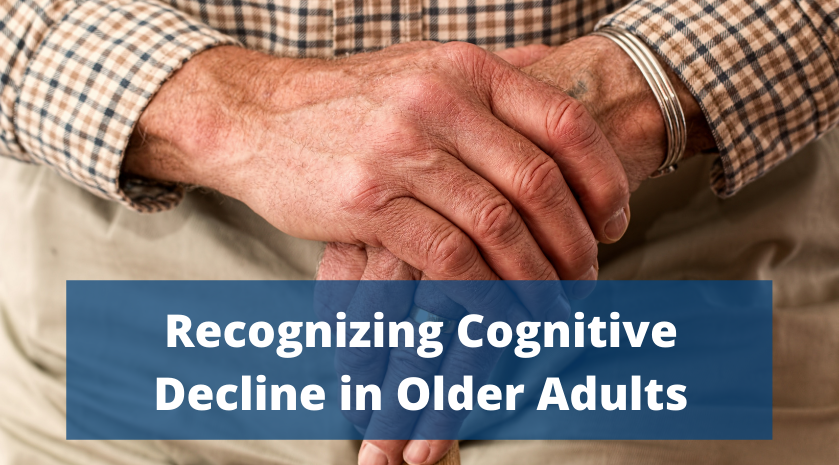If you care for a senior loved one, you understand the importance of their cognitive abilities. Aging can make someone more vulnerable to memory-related issues and cognitive decline. You want your relative to keep their mind sharp so they can live a fulfilling life. By noticing the signs of cognitive impairment before they progress, you can reduce or prevent further decline.
How to Recognize Cognitive Impairment Symptoms
According to the Alzheimer’s Association, these 10 signs could indicate early dementia or Alzheimer’s:
1. Life disruption due to memory loss
Forgetting important information related to daily function
2. Difficulty planning and organizing
Having trouble developing plans and solving problems
3. Trouble completing daily living tasks
Finding it difficult to run errands and take care of oneself
4. Confusion about place or time
Losing track of location, time of day, current date and passage of time
5. Visual processing issues
Having a reduced ability to recognize the world through sight
6. Language problems
Struggling with writing, speaking and finding the right words for concepts
7. Frequent misplacement
Losing things and forgetting the steps to retrace to find them
8. Changes in judgment
Making poor decisions with money and self-care
9. Problems with socialization
Withdrawing from work and social activities, sometimes due to the troubles caused by other symptoms
10. Mood and personality changes
Feeling more confused, anxious, depressed, fearful or suspicious than before
If you notice more than one of these symptoms getting in the way of your loved one’s daily function, they could have Alzheimer’s disease or dementia. With a doctor’s help, you can reduce the progression of their disorder.
Preventing or Reducing Age-Related Cognitive Decline
When a loved one has issues with cognitive decline, you can work with them to sharpen their mind. Try these strategies:
- Practicing healthy habits: Regular doctor visits and eating antioxidant-rich foods can curb health issues that impact memory.
- Managing stress: Activities such as exercise and mindfulness reduce stress, which could impair memory and learning.
- Creating memory strategies: Coping skills such as routines, reminders and paying more attention to remembering things can improve cognitive function.
- Performing mentally stimulating activities: Activities like reading, completing puzzles and attending adult education classes keep the mind active.
Maintaining good health and promoting an active mind help people with cognitive decline stay sharp. Ask your loved one’s doctor for more ideas for preventing age-related cognitive decline disorders.
In-Home Services for Alzheimer’s Disease and Dementia Patients
At CareGivers of America, we help seniors and their loved ones in southern Florida get the support they need. We refer our clients to experienced caregivers who provide in-home services. Our Alzheimer’s and dementia caregivers have the training to work with seniors experiencing cognitive decline. You may request long-term care for ongoing help or respite care for temporary assistance.
Contact CareGivers of America Today
To learn more about our services and caregivers, contact us online today. We welcome you to ask for more information or inquire about a free home visit.




